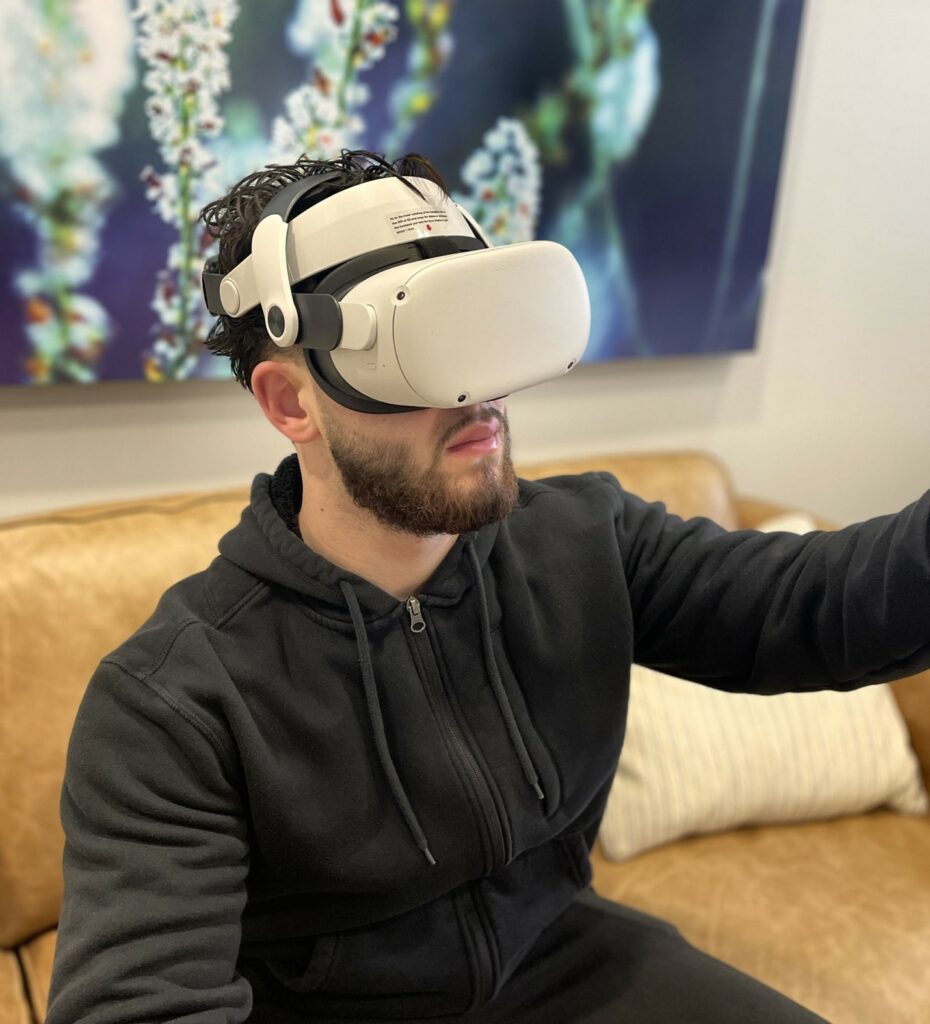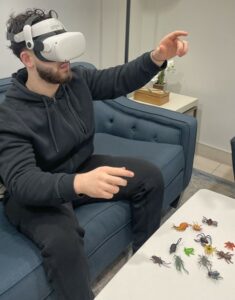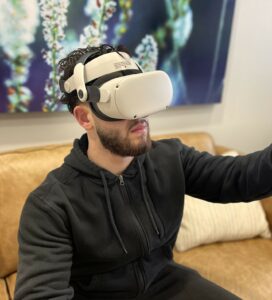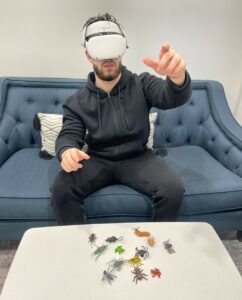
Virtual Reality Exposure Therapy: A Modern Approach to Overcoming Obsessive- Compulsive Disorder
Cristian Chereches, RSW, Psychotherapist
Virtual Reality Exposure Therapy: A Modern Approach to Overcoming Obsessive-Compulsive Disorder
Obsessive-Compulsive Disorder (OCD) is a condition characterized by intrusive thoughts and repetitive behaviors that can significantly impact an individual’s daily life. Traditional methods of treatment, such as Cognitive-Behavioral Therapy (CBT), Exposure and Response Prevention (ERP) and medication, have proven effective, but the emergence of recent research and technology has brought about innovative approaches, such as Virtual Reality Exposure Therapy (VRET).
Understanding Exposure Therapy For OCD
Exposure therapy is a well-established psychological treatment, and it is considered the most effective form of treatment of OCD. It involves exposing individuals to the thoughts, images, and situations that trigger anxiety, allowing them to confront and manage their fears in a controlled and therapeutic environment. These exposures are designed to evoke anxiety or discomfort like what the person experiences during their obsessive episodes. The process helps to desensitize individuals to the feared stimuli, gradually reducing the anxiety associated with them. The idea behind exposure therapy is to help individuals with OCD learn that their anxiety will decrease without needing to perform compulsive behaviors. Over time, through repeated exposure to anxiety-provoking situations and the prevention of their usual responses, the individual’s brain begins to adapt and learn that the feared consequences are unlikely to occur. This helps to reduce the power of obsessions and compulsions.

Virtual Exposure Therapy: Bridging Tradition with Technology
Virtual Exposure Therapy takes the principles of traditional exposure therapy and leverages technology to create a virtual reality environment where individuals can face their fears in a more immersive and controlled manner. This approach often utilizes virtual reality (VR) technology to simulate realistic scenarios related to an individual’s specific obsessions and compulsions.
How Virtual Reality Exposure Therapy Works
In Virtual Reality Exposure Therapy for OCD, individuals wear VR headsets that transport them to recreated environments. These environments are tailored to trigger the specific obsessions and compulsions that the person experiences in real life. For example, if someone has contamination fears, the virtual environment may replicate a public restroom or a crowded space where the individual is prompted to confront their anxieties. Virtual Reality is immersive, and individuals feel a sense of presence in the virtual environment. This heightened sense of realism can make the exposure more effective in triggering emotional and physiological responses. Under the guidance of the therapist, individuals gradually expose themselves to virtual scenarios, learning to tolerate and manage the associated anxiety. The immersive nature of virtual reality allows for a more realistic and personalized experience compared to traditional exposure therapy.
Advantages Of Virtual Exposure Therapy
VRET has several advantages over traditional exposure therapy, including enhanced safety, control, and the ability to customize scenarios to the individual’s needs. It can also be more engaging and motivating for some patients.
Customization: Virtual Exposure Therapy can be tailored to address the specific triggers and challenges unique to individual’s OCD symptoms. Safety: Since exposure occurs in a virtual setting, it provides a safe and controlled environment for individuals to confront their fears without the actual risks associated with real-world exposures.
Repeatability: Identical virtual scenarios can be repeated, allowing for more extensive practice and reinforcement of coping skills.
Engagement and Motivation: The interactive and engaging nature of virtual reality can enhance the individual’s willingness to participate in therapy and stick to the treatment plan.
Insight From Recent Studies
Recent studies underscore the effectiveness of VRET in reducing OCD symptoms. A notable study in 2022 by Javaherirenani et al., titled “Virtual reality exposure and response prevention in the treatment of obsessive-compulsive disorder in patients with contamination subtype,” unequivocally highlighted the effectiveness of Virtual Reality Exposure and Response Prevention in addressing the OCD-contamination symptoms. A 2023 study by Fajnerová et al., titled “Virtual reality environment for exposure therapy in obsessive–compulsive disorder: a validation study,” supported the suitability of a VR house environment for provoking OCD symptoms tailored to individual manifestations. These findings contribute valuable insights into the expanding role of Virtual Reality Exposure Therapy as a promising avenue for enhancing OCD treatment protocols.

Efficacy And Future Directions
Research suggests that VRET can be effective in reducing symptoms and improving the quality of life for individuals with various anxiety-related conditions including OCD. The immersive nature of virtual reality enhances treatment outcomes by providing a realistic and engaging platform for therapeutic interventions. As technology continues to advance, virtual exposure therapy holds promise for further innovation in the treatment of OCD and other anxiety-related disorders, representing a modern and effective way for individuals to confront their fears and regain control over their lives.

References:
- Javaherirenani, R., Mortazavi, S.S., Shalbafan, M. et al. Virtual reality exposure and response prevention in the treatment of obsessive-compulsive disorder in patients with contamination subtype in comparison with in vivo exposure therapy: a randomized clinical controlled trial. BMC Psychiatry 22, 740 (2022).
- Fajnerova, Iveta & Francová, Anna & Taranzová, Kateřina & Darmová, Barbora & Kosová, Eliška & Stopková, Pavla. (2023). Virtual reality environment for exposure therapy in obsessive–compulsive disorder: a validation study. Virtual Reality. 27. 10.1007/s10055-023-00837-5.
